|
We are living through an unprecedented time. Just a few months ago, I couldn’t have been more excited for the spring weather, finishing maternity leave, and being able to bring my now-2-month-old to visit family and friends. That is not our reality. I am devastated that I cannot share my happiest joy with people who love my son in-person. My heart breaks for my grandmother who has never met her great-grandson, for relatives who live in different states who have yet to see him face-to-face, and for the inability to even host people safely at our home. It’s painful to think about, but knowing we’re staying safe and healthy is a relief. This past Easter weekend was when we would have been traveling to visit family. Instead of focusing on the “would-haves,” I’m challenging myself to live in the “right-nows” and the “will-bes” even though it is so difficult. Right now, my little son is snuggled and sleeping sweetly near me. Right now, my family is healthy and safe from the virus. We will be able to get through this together and will be okay when this is over, although there is no timeline to lean on. Right now, God is watching over us and protecting us as he has always done and will do. The season of Easter that just began serves as joyful relief to my fearful and saddened heart. I know that when Christ died on the cross, Jesus’ disciples were experiencing these feelings, too. In Mark’s Gospel, we read about the disbelief that plagued his followers after hearing that Jesus was not in the tomb, “When they heard that he was alive and had been seen by her, they did not believe” (Mk 16: 11). Jesus’ disciples doubted and were unbelieving, like so many of us during this pandemic. But, in John 16: 22, Christ encourages, “So you also are now in anguish. But I will see you again, and your hearts will rejoice, and no one will take your joy away from you.” In Matthew’s Gospel, we furthermore hear Christ tell his disciples, “And behold, I am with you always, until the end of the age” (Mt 28: 20). With these passages in mind, I find comfort in this Easter season knowing that however inconvenienced and pained some of us are, with God at our side this will soon pass, and we can be happier than ever before. For those who share an even more difficult level of grief from losing a loved one, may you find peace in the knowledge of eternal life with the Father. In 1986, Pope Saint John Paul II spoke to Catholics in Australia saying, “We are an Easter People and Alleluia is our song!” He went on to say, “We realize that joy is demanding; it demands unselfishness; it demands a readiness to say with Mary: Be it done unto me according to thy word’”... and later goes on to implore the Blessed Mother to pray for us saying, “Help all your children to see that the good things in their lives come to them from God the Father through your Son Jesus Christ. Help them to experience in the Holy Spirit the joy which filled your own Immaculate Heart. And in the midst of the sufferings and trials of life, may they find the fullness of joy that belongs to the victory of your Crucified Son, and comes forth from his Sacred Heart. In this way, let us try to do the same.” As Easter people then, we cannot forget that during this time of great trial, our hearts already know of great sorrow followed by even greater joy. We are fortunate to be able to stay connected through this hard time with the help of social media and technology. There are so many versions of video-chatting that we can choose from. Just saying hi to someone you miss might make both of your days a little brighter. Pictures and videos of the things that you find joyful may also bring joy to someone else, so try to share the good little things with others if you can. As we look for silver linings in this pandemic, let us pause and appreciate the good things right in front of us. Gratitude is one way to ease the pain. I’m grateful for my healthy little boy, my grandmother’s health, the beautiful day outside, my dog needing snuggles, and my husband being able to work safely from home. I pray for those who are not so lucky: those who are grieving, friends and family in isolation and alone, each and every worker who is away from their own family to fight this crisis on the front lines, and those in hospitals who are infected and sick. Right now, when I get sad about plans changing and people missing out, I stop and let Christ into my heart during this Easter season. Right now, when I start thinking of the many fears and anxieties from this pandemic, I breathe and let Christ in. Through it all, I trust that God’s will be done. In this Easter season, let us rejoice in the risen Lord! We can get through this with Christ who strengthens us!
0 Comments
3/20/2020 In This Together: A Resource Guide for Families During Coronavirus Quarantine | COVID-19 ResourceRead NowTo all the parents home with their children, who are looking for creative, easy, or fun ways to spend the day, here are some great options to try for spiritual, mental, and physical health! Set a routine. It is important to establish consistency and keep kids on a structure like they are during a school day. For older children, have them collaborate with you as you create a schedule to allow for some influence on their day. It allows for predictability in the day, and children knowing what is expected of them is crucial to the well-being and peace of all in the family. Below is a schedule example. This can be used as a starting place for your family. Feel free to move things around or dedicate your time differently. What’s important is maintaining a routine that works for your family! Example:
Focus on gratitude. With many feeling anxious and having to deal with a lot that is so unknown, having a grateful heart can mean a world of difference for your well-being and that of your family. Have your child write thank-you-notes to mail carriers, restaurant workers, grocery store employees, and members of the family. Or, start the day by finding 3 things to be grateful for, then end the day like that too. Talk about this with your child and share your gratitude with them.
Prayer. There is nothing more powerful than prayer, and prayer as a family is crucial during this time at home together. Make time. Take time. Add it to a daily routine. In addition to saying prayers you may know by rote, consider reading the Daily Readings from USCCB to read the Word together in prayer. Play! For young children, older teens, and everyone in between, play is crucial. For older children that may mean down-time or free time to decompress, but for young children in elementary school this is so important for development. Playing together, but also playing independently helps support their creativity. As a parent, also take some time to think of ways you can “play”—not only with your children, but with your spouse or on your own. Make sure to come up with fun activities that are life-giving for you and your spouse: board games, a puzzle, baking, etc. Pretend and make believe. “Boredom breeds creativity” I was once told, and I couldn’t agree more! When children are given a chance to imagine and pretend away from distractions and technology they will think up all kinds of incredible things. As a parent, you may need to guide or inspire some pretend or make-believe with prompts or guidelines until your kids seem ready to take-off on their own. Even giving your child a difficult or challenging task and saying, “figure it out” may help for older kids who need to problem-solve. But here are some ways to get started:
Exercise. For children of all ages and adults too, exercise is so important. Although we must consider social distancing, getting outside and even just taking a walk is more crucial than ever as we are in our homes all day long. If you don’t have a yard to play in, try walking to the closest field or park to catch a ball or ride a bike around the neighborhood. If you cannot get outside, there is plenty to do inside. YouTube has workouts for children and adults, and there are workouts on Netflix and other streaming services to get you started. Write letters. This is a nice thing to do at all ages and levels of writing abilities, young ones can draw pictures and write what they can, while older kids could tell someone all about their latest adventure at home. Write to grandparents, relatives, elderly folks in nursing homes, neighbors, and friends from school who are also at home. It’s amazing how good someone may feel receiving a note or letter, knowing your child was thinking of them. Call someone, FaceTime, or video chat with someone. We are blessed in this digital age to have technology that can still keep us “together.” Calling friends, family, and loved ones, either on the phone or using a video chat application, maintains and strengthens our relationships with people we may not be able to see or visit right now. Read a book. Have your child help you create a booklist of 50 or 100 books and see how many they can read, then have a fun prize like baking cookies together or extra down-time be the reward. Activity pages made by teachers. For kids who are out of school altogether, look for materials online to keep kids up to speed on math skills, reading activities, and everything in between. With schools shut down, there is plenty out there to find! Make your own studying tools. Don’t forget that anyone (including the student) can make flash cards for addition, subtraction, multiplication, and division - as long as you have paper and something to write with! Some drills you could practice:
Fine motor development. Play with Play Doh (or make your own). Squeeze items with tweezers. Count and play with beads or buttons. Bake and roll out dough, ball up cookies, or knead pizza dough. We are living in unprecedented times which can add to the stress level of family life. We invite you during this pandemic to see this as a blessed time to rekindle relationships within your families and communities through prayer, play, and creativity and hope these resources will prove fruitful for you as we continue to navigate this time. Click here to visit our COVID-19 Resource Page Click Here to Download this Post as a PDF! Recently, my life has changed a lot. I had my first child, Vincent Scott Pierno, on January 31st, and he is the greatest joy I’ve ever known. I never knew that becoming a mother could fulfill my life in the ways it has, and I thank God each day for the happiness, tears, and everything in between that he has brought into my life. As a family, we’ve also started house-hunting and looking for a place to settle within this busy and chaotic Washington, DC area. My in-laws will be moving in with us, and although they’ve already been an amazing help with the newborn, it’s another change to our lifestyle. Finding joy in these changes has been challenging at times, but not impossible through the grace of God. I invite you to join me in reflecting on change in our lives and ways to find joy during times of trial and tribulation. One way to work through life’s changes is through Scripture. There are so many examples we can look to that give us strength and remind us of the goodness in change. One is Philippians 4:6-7, which says, “Have no anxiety at all, but in everything, by prayer and petition, with thanksgiving, make your requests known to God. Then the peace of God that surpasses all understanding will guard your hearts and minds in Christ Jesus.” This passage gives me hope. It can be anxiety-provoking to go through so many changes all at once, but Christ gives us strength and we can do all things with his help. Another verse from Joshua 1:9 that speaks of courage during a hectic time is: “I command you: be strong and steadfast! Do not fear nor be dismayed, for the LORD, your God, is with you wherever you go.” In Scripture, we look at examples of people who have also found change difficult and needed support from God. This reliance is the definition of faith: trust and dependence on God through all things, even when the end is not in sight. Another way to work through life’s changes is through prayer. In prayer we can develop a closer relationship with God, and in this dialogue find joy in knowing Christ more deeply. Prayer can be done in many ways: silently, out loud, in reflection, through journaling, and even through participating in the Mass regularly. Since prayer is “both personal and communal,” we can encounter Christ however we feel most comfortable. I’ve found that the most important part of this prayer is not to always ask God for things, but to offer thanksgiving and to listen. The “listening” is the hardest to do. The chaos of a busy and a constantly changing life makes it even more difficult during challenging periods to take time and listen to God. However, it is in those hard times that we can deepen our relationship with Him. The final way I’d really like to impart is by keeping track of and celebrating joy. In this age of social media and 24/7 news updates, it’s easy to see so much negativity all around us. People gossip about others, worry about things that have nothing to do with them, troll people online for their own enjoyment, and trash talk things that people don’t need to even have an opinion about. This negativity can seep into our daily lives and we can get lost in it. I invite you instead to be a whirl of positivity. As Catholics, we are called to action by being missionaries in the world. St. Vincent Pallotti suggests this in his teachings, and brilliantly states this saying, “Remember that the Christian life is one of action; not of speech and daydreams. Let there be few words and many deeds, and let them be done well.” I find his words timeless. The deeds that Pallotti refers to can be simple ones, such as celebrating anything good that comes into our lives by posting it on social media or encouraging joy in the lives of others. We could truly create small havens of joy for people to encounter by simply finding the joy that already exists. Share this joy and gratitude with at least one person, whether in-person or online. Some examples from my life include sharing in my son’s new life and looking for the good in being home with him rather than the stress. Even something as easy as a smile could change someone’s day. I invite you to use these hashtags when you post about your joys as we get through this life together in Christian spirit! #joyinChristianaction #findingjoyineverything #discoverjoyfulmoments Today we celebrate the 83rd birthday of our Holy Father, Pope Francis. We thank God for the gift of his life and pray for his continued health and leadership in our Church.
Having a birthday near the holidays must be pretty hard to bear as a child, and maybe even sometimes as an adult. Birthdays are meant to be celebrated, and sometimes they can be overshadowed by other holiday celebrations! My sister has a birthday on Christmas Day and she never seemed to be able to celebrate the same ways I could (my birthday is over the summer). I always felt bad and try to still make it special for her - even now that we are adults. Although we know Pope Francis for his humility and selflessness, I’m sure even he has found it hard to celebrate his special day from time to time. We celebrate birthdays as a way to mark our growing one year older, but I’m sure with a birthday so close to Christmas, his focus has often been on Christ. I would imagine, in his ministry, our pope has reflected on the significance of their birthdays being so close and how he can look to the purpose of the season over his own celebrating. Let’s also reflect on this now. How can we make Jesus’ birthday especially meaningful this year? In what ways can we strive to “celebrate” with Christ? What implications does Christmas have on my upcoming year as I continue to grow in my faith? “The reason for the season” is a common phrase we hear at this time of the year— a helpful little rhyme to keep us thinking about Jesus’ birth. The purpose of the Son of God coming to Earth was to save us all from our own sins, yet we so often confuse this time with shopping deals and stressful holiday travel plans. Our Lord doesn’t need any of that. He doesn’t need physical gifts—he needs our hearts. He doesn’t need perfection—he yearns for our humble, raw, and disheveled selves. He doesn’t need displays of lights and blow-up snowmen—he needs us to shine his light in the darkness. In order to celebrate his birth, we must first put aside the distractions and concerns that keep us away from prayer and peace at Christmas. The meaningful celebrating that we should be doing for Christ isn’t wrapped up with bows and shiny paper, but includes finding time to appreciate and pray about our Lord’s coming. The celebration for an ordinary person may be tied to cake, candles, and presents, but as Pope Francis would likely agree, celebrating Christ comes from the heart. One way I’ve found to celebrate Christ’s birthday amidst the hustle and bustle of the season is by listening to joyful, instrumental Advent and Christmas music. Something about it makes me feel so peaceful and filled with the joy of Christ that I almost prefer it to lyrical Christmas music on the radio or Spotify! Another practice I’ve found to be helpful is focusing on the giving aspect of Christmas. I feel better giving rather than getting things. My favorite way to celebrate the birth of Jesus is to share the gift of the Christmas story with my young Pre-Kindergarten students. Having been blessed to work in a Catholic school, I’m able to share the incredible birth story of Jesus Christ and to teach those beautiful little minds about God’s promise of love to the world. When I sit back and realize the gravity of my role as a catechist to these children, I feel humbled by it. My heart soars, it prepares my soul for Christmas, and I’m reminded of this holy birthday from so long ago in Bethlehem. As we look toward a new year, both for Pope Francis and for us Catholics, we are reminded that Christmas is only the beginning of Christ’s work on Earth. His ministry will begin at a wedding as an adult farther down the line, and his death and Resurrection happen even later than that. We know Christ’s birthday was celebrated by angels sharing the Good News. We know there were shepherds who also heard about Jesus’ birth, and finally three wise men who followed the star to where Jesus was born. This new year has so much faith-filled potential to allow us a chance to listen closely to how the Gospel message tells us to love and to share our love with those we meet. We can show God’s love to all by living out each day as apostles who share the Good News. So today, on this 83rd birthday of our pope, keep him in your prayers. Pray for continued faithful leadership in our Church at this tumultuous time in our world. Pray for his health, that he may find strength in Christ and remain well. Feliz cumpleaños, Papa Francisco! For more resources to accompany you this Advent and Christmas, please click here. On August 15th, the Solemnity of the Assumption of our Blessed Virgin Mother into heaven, we celebrate Mary’s completion of life on Earth and her existence in eternity with Jesus. We can reflect on her sinless life as she was chosen by God to be the mother of Christ and also on her example of motherhood, grace, and virtue.
On this Marian feast, I feel a special closeness to the Blessed Mother because I recently found out that, I too, am preparing to be a mother. I ask for Mary’s intercession for a healthy pregnancy often and I hope to love more each day like she did. From her moment of saying, “Yes!” to God at a young age, to her worried searching for Jesus in the Temple, and even to her urging of her son at the Wedding at Cana to begin his ministry, Mary is a mother we can relate to. Her faith in God kept her focus on Jesus and his growth, safety, and well-being on Earth in order to ensure that he would fulfill his life’s mission to save us all from sin. Mary is the mother we can all imitate. Mary’s life was probably not an easy one. She faced speculation and ridicule from those in her community when she gave her Fiat and said yes to God’s plan. She lived at a time when a pregnant and unwed woman could be outcast from everyone she knew, but she persisted and trusted. Enduring these hardships could create doubt in someone’s mind and dissuade a person, but Mary stayed true to her grace-filled faith. I like to imagine that her cousin Elizabeth was a kindred spirit for Mary, someone who could support her and was also full of grace and faith. Joseph too, said “Yes!” to God, took Mary as his wife, and raised Jesus with strength and grace. He was a supporter for Mary and loved her, fully knowing his purpose as a protector and provider for the family. Throughout her life, we know that Mary reflected and pondered on the many blessings she had received. Scripture tells us she held them in her heart. Let us appreciate those special moments in our lives, too! Recently, I’ve been trying to take a moment each day to “hold things in my heart” and reflect on the goodness of God. Sometimes it’s when I see the sunshine for the first time that day. Other times it’s at the end of the day in a more reflective manner, and still other times it is in a crucial or stressful moment as I search for the good in what’s going on around me. There are many times throughout our days in which we could pause, reflect on a blessing, and have a grateful moment of prayer. On this Assumption, I challenge you to imitate Mary and learn from her grateful heart in this way. Below is a prayer from the Liturgy of the Hours, a method of prayer that seminarians, priests, religious sisters, deacons, and lay people participate in all over the world. This particular prayer is prayed on the feast of the Assumption. As we celebrate the Assumption of Mary, let us look to her example of faith and devotion and let us ask her to continue to bring us closer to Christ and help us to live for his glory. Almighty God, You gave a humble Virgin the privilege of being mother of your Son, and crowned her with the glory of heaven. May the prayers of the Virgin Mary bring us to the salvation of Christ and raise us up to eternal life. We ask this through our Lord Jesus Christ your Son who lives and reigns with you and the Holy Spirit, one God, forever and ever. Amen. Holy Week is one of my favorite weeks of the year; each of the days builds with anticipation and I get excited just by the thought of Easter Sunday. Lent is almost through and it’s almost time to be joyful in the Risen Lord. When I was little, I felt this anticipation and excitement too. I would spend Holy Week letting people know that Easter was only a couple short days away—it felt like spring would officially be here as soon as we woke up on Easter Sunday! “The very best holiday of the year” was coming, and I had to get ready for it! Did I fully understand it was Christ that I was waiting for or did I just want to wear my new white shoes for church? Looking back, although it could have been the new Easter shoes, I think my 10 year-old-self would have agreed that I really was waiting for Holy Week as the final stretch to the finish line on a journey that began on Ash Wednesday.
In today’s Gospel reading, we read about moments of betrayal and loyalty. Judas leaves the Last Supper to betray Jesus while Peter in his humanity says that he will never deny him. I find it to be one of the most powerful Gospels of Holy Week. Here’s why: Like Peter, we are called to be disciples whose repentance leads to an experience of God’s forgiveness. Jesus knows that his friends will betray him and that he has limited time left on Earth. On one hand, Judas tries not to be obvious about his deception as he leaves the table, and on the other hand, Peter publicly tells Christ that he will stand by him and never fail him. Ultimately, both men betray Jesus, but it’s Peter who seeks forgiveness and allows himself a second chance. Judas, on the other hand, is overcome with guilt and despairs that his sin is beyond the reach of God’s mercy-- eventually taking his own life. We are like Peter in so many ways! We say we love Christ and that we could never deny him, but at the first sign of pressure we sin and turn our backs on him. How often have we chosen to do something that pulls our hearts from Jesus? It is during Lent—especially during Holy Week—that we recall the pain we’ve caused Christ. This week and each day, Jesus gives us another chance to say to him, “Forgive me; I have sinned.” When Christ meets his disciples after his Resurrection, he asks Peter, “Do you love me?” Let us respond with Peter this Easter, “Yes Lord, you know that I love you!” As Easter approaches, we remember how much we are loved by Christ in his Passion, death on the Cross, and soon to be Resurrection. In these next few days, I challenge you not to say, “Lord I could never deny you!” but instead, “Forgive me Lord, for I have sinned.” Last year on Good Friday, Pope Francis said, “Lord Jesus, always grant us the grace of holy repentance...the spark of hope is lit in the darkness of our despair, because we know that your only measure for loving us is to love us without measure.” This Holy Week, in this time for “holy repentance,” let us make sure to spend these last days in Lent with our hearts preparing for Easter. May we use these remaining days in the desert as a time for forgiveness and allow our hearts to be loved by Christ. May all of our hearts gleam with anticipation for Holy Week and better knowledge of the Risen Lord! St. Joseph was a man for the ages. I like to think of Joseph as a man that walked the walk and only talked if it was necessary. I imagine that he went about his life quietly and out of the spotlight, worked hard in his carpentry, and spent time with his family in Nazareth. Imagining Joseph living today, I have similar imagery: he works for his father’s woodworking business, devotes time in his day for quality family time, and volunteers on weekends. I can picture the same figure then and now. Can you?
St. Joseph’s March 19th Solemnity celebrates faith, fatherhood, and fortitude in a way that brings people together. St. Joseph is the patron saint of the Universal Church, fathers, families, expectant mothers, travelers, immigrants, craftsmen, and many more! People all around the world look to Joseph as a model for their lives because of his deep faith, warm fatherhood, and fortitude. His deep faith evidenced in his “Yes” to marry the Virgin Mother. As we read in the Gospel of Matthew (Mt 1:18-19), Joseph was a kindhearted man who loved Mary so much that he was willing to risk his reputation. He was ready to stick by her through the betrothal and pregnancy and figure it out later, as we might say today. Matthew’s phrase is “divorce her quietly.” Scripture also tells us that God sent his angel in a dream to straighten things out with Joseph: “Joseph son of David, do not be afraid to take Mary home as your wife, because what is conceived in her is from the Holy Spirit. She will give birth to a son, and you are to give him the name Jesus, because he will save his people from their sins.” Certainly, only a man of true faith would hear these words and trust in God’s plan. His protection of the Holy Family and warmth while raising Jesus as his own. Although there is little written about Jesus’ life as a boy before his ministry, we can be sure that Joseph took great care of the Son entrusted to his care. Even when Jesus was a baby, Joseph protected him from death (Mt 2:19-23), presented Jesus at the Temple as was customary (Luke 2:22), and taught him his carpentry trade. This real-life example of fatherhood is one that lends its patronage to all fathers today. In my experience, my dad modeled the fatherhood of St. Joseph when he taught me that working hard in the service of others is one of our greatest duties on Earth. My dad also taught me perseverance. And finally, my dad taught me about optimism—an outlook on life that is forever reaching toward hope and success. Fathers have a model to emulate in St. Joseph’s quiet support and care for his family. His fortitude to face the world in times of adversity. At important times in Joseph’s life, he was challenged by God. In those moments, he rose to the challenge by making a selfless choice. In our lives as Catholics, we are often challenged at times of weakness or when life seems hard. Negativity can seem endless, problems pile on top of other problems, media stories show no hope, and family life is full of brokenness. When we are faced with these challenges, it is important to remember our forefathers in faith. We, like St. Joseph, must put our trust in God and entrust to him our lives and those of our loved-ones as well. The tumultuous world we live in will never have hope if we as Catholics are not the first ones to share God’s love. St Joseph is the perfect model of faith, fatherhood, and fortitude that we need in today’s world. Here is a short prayer to St. Joseph for his intercession. Pray this and feel God lift away your fears and despair. Oh St. Joseph whose protection is so great, so strong, so prompt before the throne of God, I place in you all my interests and desires. Oh St. Joseph do assist me by your powerful intercession and obtain for me from your divine son all spiritual blessings through Jesus Christ, our Lord; so that having engaged here below your heavenly power I may offer my thanksgiving and homage to the most loving of fathers. Oh St. Joseph, I never weary contemplating you and Jesus asleep in your arms. I dare not approach while he reposes near your heart. Press him in my name and kiss his fine head for me, and ask him to return the kiss when I draw my dying breath. St. Joseph, patron of departing souls, pray for us. Amen. Every year at the school where I teach, the students do a project on St. Ignatius and our school’s Jesuit identity. We focus on the way St. Ignatius taught people to help others, whether in our own classroom and at home, or on the street and in desperate need of assistance. We teach the students about what it means to live a Magis life, meaning “greater” in Latin, i.e., living for a higher purpose to serve. My favorite part and the purpose of this lesson for the small ones is the opportunity to open their eyes to the needs of others and ask them what they can do to help.
Some common answers:
Although these answers are from 5 year olds who are just learning about God, they carry weight and insight, demonstrating that a Magis life can be lived even through our everyday actions. Now, enough about the cute Pre-Kindergarteners, here is some information on St. Ignatius and the Magis life that we “older kids” can focus on. A short biography of St. Ignatius: Ignacio de Loyola was born in Spain in 1491 at a time when noble families like his expected their sons to become soldiers and fight in battles for their country. Ignacio loved the bravery and recognition that came with being a soldier and often basked in the glory of victory. Little did he know that one day his life would drastically change. In 1521, a French cannonball shot Ignacio in the leg and left him bedridden. While he was recovering from his wounds, he read two books: one was on the life of Christ and the other was on lives of the saints. As he read, he noted the good works that these saints had accomplished and desired to do great things with his life, too. He vowed, then, that he would serve the rest of his life in service to God, doing Christ’s work on Earth. Soon after he recovered, his goal was to be educated, know more about the faith, and serve as a spiritual director. He eventually compiled the many prayers, insights, meditations, and thoughts on how to live in Christ as a person of faith. He called this compilation the Spiritual Exercises. Years later, with friends Francis Xavier and Peter Faber, Ignacio formed a new order called the Society of Jesus, also known as the Jesuits. Their message consisted of doing things Ad Majorem Dei Gloriam (AMDG), in English, “For the greater glory of God,” a message that children and young people can understand easily. The Jesuits were educators and missionaries and opened many schools around the world. St. Ignatius’ message lives on through the words and works of the Jesuits. Additionally, Pope Francis is the first Jesuit priest to be named Pope. In my school each morning, we pray the Suscipe, a prayer that is said to have been written by St. Ignatius, which asks for God’s guidance for the day. It helps the students and teachers alike remember that each day is a new beginning, regardless of what happened the day before. I invite you to take a moment and pray this prayer. I would encourage you to even begin to say it once a week, or each morning on your way into work, or in a quiet space during lunch. As we remember St. Ignatius of Loyola on his Feast Day today, let us remember his way of living Magis, a life with a higher purpose that always strives to serve Christ better than before. The Suspice Take, Lord, and receive all my liberty, my memory, my understanding, and my entire will, All I have and call my own. You have given it all to me. To you, Lord, I return it. Everything is yours; do with it what you will. Give me only your love and your grace, that is enough for me. Amen. When I was in 8th grade, I helped teach for my parish’s religious education program and counted the hours toward my required community service time before receiving the Sacrament of Confirmation. I was an assistant for the 5th grade, and I thought it was the coolest thing. I could share with the class what I knew about the Church, even teaching them at one point how to pray the Rosary. Looking back, it seems like I was destined to teach in a Catholic school! After college, I began working at my current school in the Archdiocese of Washington (ADW), where I continue to teach and share my faith with the students. To this day, I continue to teach religion. I strive to form my students as disciples according to six elements of Catholic life: Knowledge of the Faith, Liturgy and Sacraments, Morality, Prayer, Education for Living in Christian Community, and Evangelization and Apostolic Life.
For catechists who actively pass on the Word of God to others, teaching the faith can become almost second nature. For instance, at my school, we incorporate core Jesuit principles into the curriculum each day and reflect on our own actions through prayer. In my pre-K classroom, we use these principles to talk about kindness and loving others as St. Ignatius taught. In a special way, my students are learning how to be good friends and love others the way Jesus did. In the Archdiocese of Washington (ADW), the religious curriculum has standards by which its content is measured and assessed—like any other subject area in school. In fact, ADW is trying to support catechists to do more to collaborate and keep kids engaged and excited about learning their faith. Professional development of catechists is crucial to a school, parish, or community. Learning how to be better witnesses of the faith ensures that our children are receiving the best formation of conscience they can get. Although there are people certified and educated to teach as catechists, most of us are already fulfilling that duty as faith-filled adults in the Church who witness to and spread the Gospel. Below is a list I have compiled of a description of a catechist. After reading it, do you feel called to become one?
For more information, we invite you to view the following webinar at the bottom of the page:
Question for Reflection: How can you teach the faith to others in your everyday life? *This post was originally published in May 2017* This Lenten season, I’m trying to be intentional with my prayer. In the Gospel today, Jesus teaches the disciples to pray the Our Father. When I read this passage to my students, they were really excited to make the connection to Jesus’ teaching and to a prayer some of them had heard before. Their little faces lit up and hands shot into the air to share about their experience with the Our Father.
In a 2016 homily, Pope Francis explained that the concept of “Father” in the Our Father is the cornerstone of prayer, for it gives us our identity as sons and daughters of God and as a family. Prayer is a way to connect with God, talk to him, and deepen our relationship with him. In prayer, Pope Francis said that if we do not begin “with ‘Father’ and with the awareness that we are children and that we have a Father who loves us and knows all of our needs,” we can sometimes find ourselves in our most vulnerable place: alone. It can be hard to be open and listen for God’s voice in the midst of worrying about ourselves and our concerns. This Lent, I invite you to use prayer to help deepen your understanding of your identity as the son or daughter of God and to put aside distractions and focus on Christ. In prayer, we can discover a deeper sense of self and of others. We can also take a moment to consider our failures and better understand God’s forgiveness. In the Our Father, we ask God to forgive us and pray that we can find strength to forgive others. That strength can be found in the Sacrament of Reconciliation and in making amends to those whom we have wronged. This deepens our relationship with God and with others. Pope Francis continued, “If you go to pray and say only ‘Father’, thinking of the One who gave you life, who gives you your identity and loves you, and you say ‘our’, forgiving everyone, forgetting offences: this is the best prayer that you can make”. Throughout Lent, I want to deepen my prayer life and model for my students and my husband that God is truly at the center of my life. During Lent, I’d like to challenge myself to sit in the chapel some mornings before school starts and pray in silence before God. I’d also like to plan my morning around a daily Mass. Throughout Lent, I will look to the Our Father as a centering and reflective prayer. Jesus taught us to pray with it, and I intend to use these simple but transformative words to guide my life. Just as my students continue to learn about prayer, I too will continue to allow myself a chance to start over and prepare my heart for God’s love this Lent. As we continue on our Lenten journey, I invite you to reflect on the following questions asked by Pope Francis in his homily: “Do I see God as Father, do I feel that He is my Father? And if I do not feel that He is, do I ask the Holy Spirit to teach me to know this? Am I capable of forgetting offences, of forgiving, of letting things go and asking the Father: ‘they are also your children, and they treated me badly, please help me to forgive?” For more Lenten and Easter resources, please click here. This year’s Advent was special for me; I have so much to be thankful for. My husband and I celebrated our first Advent season together, and are experiencing both the chaos and joy of the Christmas season. Joy for us is found in the little moments and in reflecting on the birth of Jesus. Something we found particularly joyful during the Advent season was sitting and writing out Christmas cards. Thinking about each of the people we were writing to and sharing our love with them reminded us of the love we give by spreading the Good News. The Christmas miracles of joy and giving are alive in those cards; and we hope they inspired our relatives and friends. For my husband, opening cards is a moment of celebration because he loves getting mail. That is the joy that we wanted others to experience this Christmas.
As we reflect on this Christmas season, we can recognize the things that foster joy in our hearts. I’ve taken time to consider my own generosity and think of those in need. In the Prayer of St. Francis we hear a reminder of how to live with our hearts open. One of my favorite lines from that prayer reminds us that “it is in giving that we receive.” Those are such poignant words. The Christmas season especially reminds us to give of ourselves. We look to the generosity of God Himself, who became man in order to give us the gift of salvation. When the world is in disarray, let us look to Christ who came to us in absolute humility on Christmas morning. I imagine the hustle and bustle in Bethlehem as Mary and Joseph went through the hordes of people for the census only to find no room for them. They ultimately found a quiet and humble spot for the most important birth in the world; Jesus brought joy to the chaos. In our lives, He brings joy, too. In the chaos of the holidays, in the midst of our planning and scheduling, travel and seeing relatives, we find that same child. The center of our lives is Christ Himself, welcoming us to quiet peace and joy. As we continue to celebrate this Christmas season, turn to the quiet and find Him for yourself. You will find joy there. Turn to the person in need—you will find joy there. Open your hearts to love and giving and you will find joy in the chaos. Merry Christmas! Question for Reflection: How can you carve out time each day to "turn to the quiet" and spend time with Christ? For more resources on Advent and Christmas, please click here. When I was in 8th grade, I helped teach for my parish’s religious education program and counted the hours toward my required community service time before receiving the Sacrament of Confirmation. I was an assistant for the 5th grade, and I thought it was the coolest thing. I could share with the class what I knew about the Church, even teaching them at one point how to pray the Rosary. Looking back, it seems like I was destined to teach in a Catholic school! After college, I began working at my current school in the Archdiocese of Washington (ADW), where I continue to teach and share my faith with the students. To this day, I continue to teach religion. I strive to form my students as disciples according to six elements of Catholic life: Knowledge of the Faith, Liturgy and Sacraments, Morality, Prayer, Education for Living in Christian Community, and Evangelization and Apostolic Life.
For catechists who actively pass on the Word of God to others, teaching the faith can become almost second nature. For instance, at my school, we incorporate core Jesuit principles into the curriculum each day and reflect on our own actions through prayer. In my pre-K classroom, we use these principles to talk about kindness and loving others as St. Ignatius taught. In a special way, my students are learning how to be good friends and love others the way Jesus did. In the Archdiocese of Washington (ADW), the religious curriculum has standards by which its content is measured and assessed—like any other subject area in school. In fact, ADW is trying to support catechists to do more to collaborate and keep kids engaged and excited about learning their faith. Professional development of catechists is crucial to a school, parish, or community. Learning how to be better witnesses of the faith ensures that our children are receiving the best formation of conscience they can get. Although there are people certified and educated to teach as catechists, most of us are already fulfilling that duty as faith-filled adults in the Church who witness to and spread the Gospel. Below is a list I have compiled of a description of a catechist. After reading it, do you feel called to become one?
For more information, we invite you to view the following webinar at the bottom of the page:
Question for Reflection: How can you teach the faith to others in your everyday life? In 61 days, I will no longer have my maiden name, will no longer have to mark “single” on tax forms, and will be the happiest girl in the world. This is because I will marry my best friend at our parish in front of our family and friends, and thus become man and wife. But before we’re retired and sitting together on the porch swing celebrating many years of happy marriage, my fiancé and I have some work to do.
The journey of preparing in mind, body, and soul for the vocation of marriage has been an eventful one. Wedding planning isn’t easy. It has tested our patience and our communication skills. But on that Saturday afternoon 61 days away, when we commit ourselves to each other, we are making a statement. In our profession of vows, we will be showing the people in attendance that Christ is a central part of our lives, and that God is at the center of our relationship. Throughout our ceremony, we are inviting our guests to reflect on God’s love for them and to join us in sharing our faith as the Body of Christ. Sacraments are meant to bring people closer to Christ. Those present will witness this sacrament from wherever they are in their walk of life and faith journey, and hopefully have an encounter with God. We look forward to providing a moment of evangelization as missionary disciples through our marriage. My fiancé and I have learned a lot from the example of married friends and family who live out their Catholic faith. One couple that recently welcomed an addition to their family has been instrumental in answering questions we’ve had about what happens next and giving us advice throughout our marital preparation. They’ve helped my fiancé and I better understand what it means to be a young and newlywed couple, juggling jobs, obstacles, and life events, and doing it all with faith in God. They and so many others have shown us what it means to live out marriage with love for God and each other. In the Archdiocese of Washington, two other couples have been examples of commitment and love. Ephraim and Sussie, who have been married for 25 years, and Bob and Laurin, who have been married for 75 years, talk about their love stories and how they cherish each other to this day. Couples like these have had to work hard at their marriage through good times and bad—just as we will. Through it all, they keep God at the center of their relationships. During these next 61 days, I will pray for my future husband, for myself as a wife, and for God’s grace to be present through it all. We will work at our marriage, this is for certain—and it won’t be easy. But with communication, understanding, forgiveness, and prayer, we will make it. During the Pre-Cana course we attended a few months ago, we learned a few things about communication and prayer that I would like to impart to anyone, whether you are in a relationship, have great friendships, or are several years into your marriage. My fiancé helped me create a list of the top ten things that stuck out to us. I hope they help you, too!
For more resources on Marriage and Family, click here. Questions for Reflection: How can the example of married and engaged couples help those discerning marriage? Are there people in your life that you look to as witnesses of fruitful marriage? When I was in 8th grade, I helped teach for my parish’s religious education program and counted the hours toward my required community service time before receiving the Sacrament of Confirmation. I was an assistant for the 5th grade, and I thought it was the coolest thing. I could share with the class what I knew about the Church, even teaching them at one point how to pray the Rosary. Looking back, it seems like I was destined to teach in a Catholic school! After college, I began working at my current school in the Archdiocese of Washington (ADW), where I continue to teach and share my faith with the students. To this day, I continue to teach religion. I strive to form my students as disciples according to six elements of Catholic life: Knowledge of the Faith, Liturgy and Sacraments, Morality, Prayer, Education for Living in Christian Community, and Evangelization and Apostolic Life.
For catechists who actively pass on the Word of God to others, teaching the faith can become almost second nature. For instance, at my school, we incorporate core Jesuit principles into the curriculum each day and reflect on our own actions through prayer. In my pre-K classroom, we use these principles to talk about kindness and loving others as St. Ignatius taught. In a special way, my students are learning how to be good friends and love others the way Jesus did. In the Archdiocese of Washington (ADW), the religious curriculum has standards by which its content is measured and assessed—like any other subject area in school. In fact, ADW is trying to support catechists to do more to collaborate and keep kids engaged and excited about learning their faith. Professional development of catechists is crucial to a school, parish, or community. Learning how to be better witnesses of the faith ensures that our children are receiving the best formation of conscience they can get. Although there are people certified and educated to teach as catechists, most of us are already fulfilling that duty as faith-filled adults in the Church who witness to and spread the Gospel. Below is a list I have compiled of a description of a catechist. After reading it, do you feel called to become one?
For more information, we invite you to view the following webinar at the bottom of the page:
Question for Reflection: How can you teach the faith to others in your everyday life? Recently, I attended a marriage preparation weekend with my fiancé. We learned a lot about each other and grew in love and appreciation for one another, but something we discovered over the weekend was the difference in how we pray. We are both faith-filled people who serve the Church in a variety of ways, but we had never really thought about the ways we pray. We had especially never considered praying together as a couple…or so I thought. Over the weekend, the couples who shared their stories kept talking about prayer together, and it made me want to have that in our relationship, too. I thought about how my prayer life is full of journaling, talking with other faith-filled gal pals, reflection, song, and giving thanks. I learned that my fiancé’s prayer life was found primarily in the Mass and when he truly needed something. Then I thought about how we go to Mass together each week and make it the high point of the day. Turns out, we have been praying together this whole time—in the Mass! For us, going to Mass is not just something “to do” on Sundays, it’s the beginning of a new week with Christ in the Eucharist, living out His love for others through prayer and witness.
All this thinking about prayer got me asking: how many other ways are there to pray? Prayer is a funny thing. It’s not like math with a specific algorithm to follow in order to get the answer. Prayer is done by adults and children, men and women, healthy and sick, in good times and in bad, all across the world. Prayer is so diverse and can actually be simple to do. Our Catholic faith has provided us with prayers to say to God, songs to sing and listen to, quiet to listen for God’s voice, and a chance to meet him in the Eucharist at Mass. Jesus himself taught his disciples to pray when they asked him, and he left us the Our Father as a result (Matthew 6: 9-13). He wanted us to teach others these words because they cover everything you might need to say. Jesus said, “This is how you are to pray: Our Father in heaven, hallowed be your name, your kingdom come, your will be done, on earth as in heaven. Give us today our daily bread; and forgive us our debts, as we forgive our debtors; and do not subject us to the final test, but deliver us from the evil one.” Through these few words, we can become closer to God and more dedicated to living the Gospel each day. Jesus also left us with the Mass. Mass is the place where my fiancé and I first began our relationship, the place we will continue to go on a regular basis together, and where our future children will experience the presence of Christ in the Eucharist. For those who may not be familiar with the structure of the Mass, it is separated into two major parts: the Liturgy of the Word and the Liturgy of the Eucharist. Within these two parts, there are various prayers and belief statements like the Responsorial Psalm and the Nicene Creed. The “source and summit of Christian life” is the Eucharist, and it comes after we have heard the Word, or the scripture readings (Lumen Gentium, 11). Together, these two parts help us become witnesses of the faith and of God’s love for others. For some, Mass is not where they experience deep prayer and closeness to Christ like my fiancé does. Some feel close to Christ in nature and through wonder and awe. Some find God in the quiet reflection of their day. Others pray each day with a Rosary, Liturgy of the Hours, or other conventional prayers. Personally, I like to switch up my prayer routine and experience different forms of prayer. Prayer is amazing because we have so many ways we could pray and yet, no matter which way we choose in that special moment, we are still opening our hearts to God. In prayer, we are creating a connection with God. This is such a complex concept, talking with our Creator, but so simple to do! Let us close in a simple but powerful prayer: Glory be to the Father, and to the Son, and to the Holy Spirit, as it was in the Beginning, is now, and ever shall be, world without end. Amen. Question for Reflection: What are a few ways to incorporate communal prayer into your spiritual routine? If you are in a relationship with a significant other, reflect upon what ways you pray together. Click here for more resources on Prayer and Catechesis. |
Details
Archives
April 2024
Categories
All
|
About |
Media |
© COPYRIGHT 2024 | ALL RIGHTS RESERVED







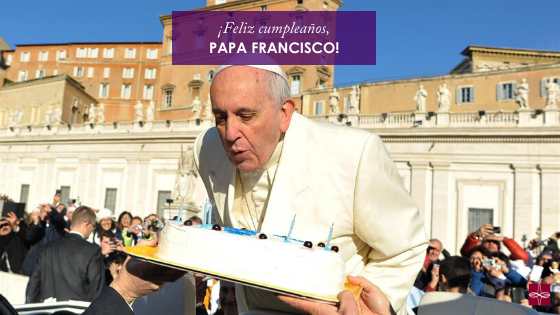
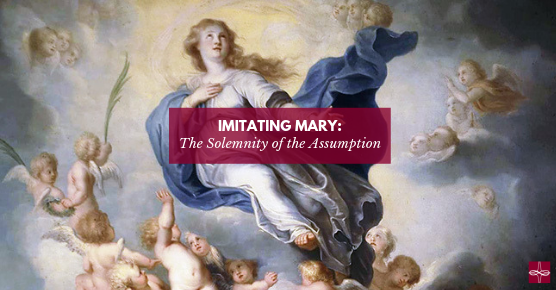

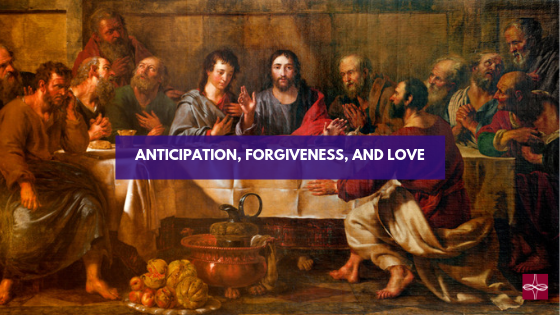

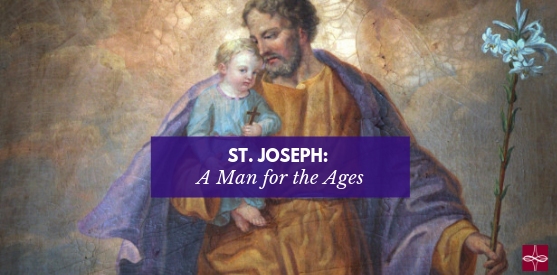



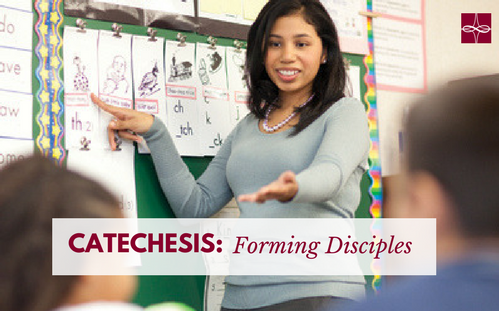



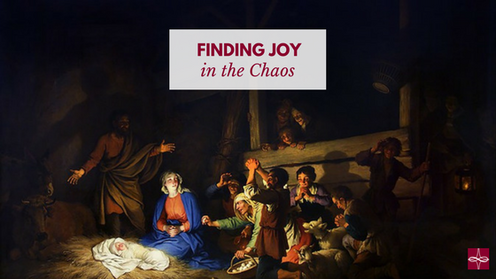

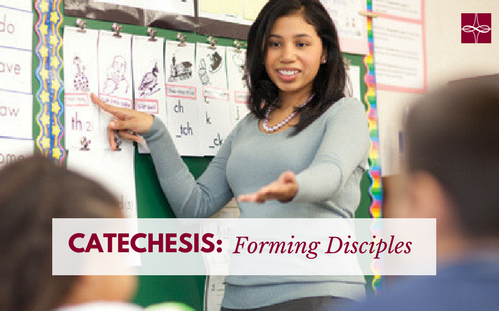



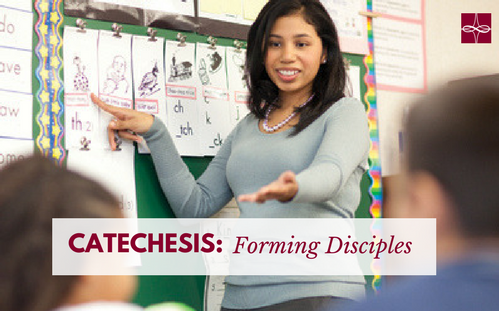

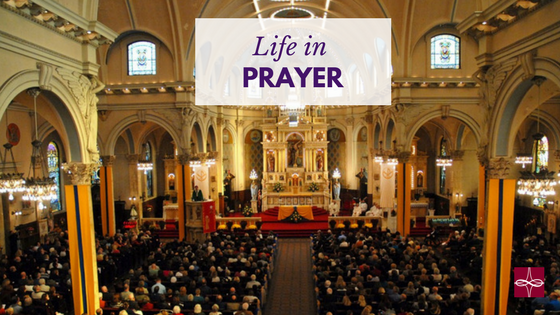

 RSS Feed
RSS Feed